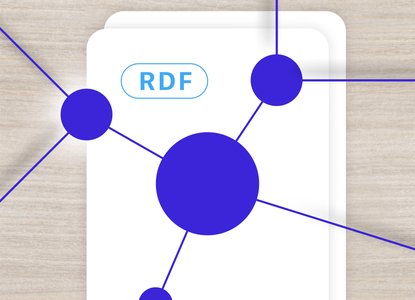From the "why" to the "how": working with EITI and OGP

Over the last few years, there’s been significant progress towards making beneficial ownership transparency (BOT) a global norm, with 18 countries making beneficial ownership-related commitments in their Open Government Partnership (OGP) National Actions Plans.
This growing momentum is encouraging given the potential for implementation efforts to achieve significant policy impact, and to contribute towards a global drive to abate corruption and increase trust between citizens, government and business. This process can be strengthened through coordination and support by platforms like the Extractive Industry Transparency Initiative (EITI) and OGP.
The Beneficial Ownership Leadership Group (the Leadership Group) launched by the UK Government, in partnership with OpenOwnership and OGP, at the OGP Summit in May will play a significant role in coordinating efforts. OpenOwnership will coordinate key Leadership Group activities, facilitate discussions on international best practice and produce related guidance. Last month EITI hosted a high-level roundtable discussion on “Beneficial ownership transparency as a global norm”, organised by OGP, to explore this theme further.
Over 20 countries participated and shared the progress they’ve been making towards transparency of beneficial owners. Their experiences and comments gave us a strong sense of the drive behind beneficial ownership transparency, the different challenges that countries face, and the ways in which achieving certain milestones can simplify implementation.
Their experiences highlighted how efforts for BOT in the extractive sector have sparked wider reform, spilling out into other sectors. As a consequence, many countries have decided to require disclosure of beneficial owners relating to all the companies operating in their jurisdictions, and not just those operating in the extractive industries. This aims to address challenges related to hidden ownership identified within governments’ broader anti-corruption agendas, particularly in higher-risk areas such as subcontracting and public procurement.
Let’s home in on what implementing BOT really means in practice at a national level. Discussions at this event gave us a strong sense of how countries are progressing at all stages of the implementation cycle from making public commitments through to legal and policy considerations, publishing data and creating public registers.
Both the Philippines and Burkina Faso have included BOT in their OGP National Action Plans. The Government of the Philippines recently committed to disclosing beneficial ownership through mandatory General Information Sheets, which will be filed annually. They hope to implement this by the end of the year, and will be piloting disclosures for extractive companies with support from Philippines EITI.
Argentina has created a new obligation for disclosing beneficial owners in their federal corporate law (though this is currently only mandatory for companies incorporated in the jurisdiction of the city of Buenos Aires). Mongolia’s new law has a chapter on Beneficial Ownership (BO) disclosure. They’re excited about how closely this legislation links in with their commitment to contract transparency. Sierra Leone expects to have a draft of BO legislation by the end of the year, which takes the EITI Requirements on BO disclosure as a starting point. They’re also working on harmonising the existing laws so that they are compatible with BO disclosure in order to aid implementation.
Recent laws in the Kyrgyz Republic make BO disclosure mandatory for extractive sector companies. This is a critical first step, though they recognise that specific details which would strengthen implementation e.g. on data gathering and verification are still needed for this move to be impactful. The Open Ownership team will be working closely with them to lay out these details along the lines of the recommendations in our scoping report.
Nigeria and Armenia already have national corporate registries in place, with Armenia requiring beneficial ownership data to be disclosed. Open Ownership have been supporting Nigeria on their design of forms and collection processes for its pending beneficial ownership provisions. Meanwhile, Senegal is working on developing a beneficial ownership database for the extractive sector.
Participants were unanimous in recognising that while BOT is a critical step in the fight against corruption, curtailing illicit financial flows and strengthening business integrity, it is only useful if the information is utilised for investigating and fighting corruption. This was also highlighted in another session of the EITI Global Conference, where a panel of experienced stakeholders discussed good case practices on how beneficial ownership information can be used to curb corruption and strengthen extractive sector governance.
It is critical that data is usable and of high quality for policy impact to be achieved. Publishing to the Beneficial Ownership Data Standard (BODS) can support this process as well as ensuring that data can be linked to other datasets, making it easier to uncover corrupt or unethical practices. Interestingly, Burkina Faso emphasised the critical need to work with companies and civil society in order to successfully move forward with implementation and to achieve policy impact. A networked problem requires networked solutions and anti-corruption initiatives are going to require coordinated efforts across both borders and sectors.
EITI and Open Ownership plan to work together to enhance BOT and support countries through their implementation process, creating synergies and convening opportunities to harness the momentum that’s been gained in moving towards a global norm of BOT. While the “why” behind BOT is now quite clear, participants in the event raised challenges inherent to “how” this can be achieved. Many EITI countries have requested assistance and with the January 2020 deadline mandating extractive companies in EITI countries to disclose their beneficial ownership information fast approaching, requests are likely to increase.
The EITI Requirements and multi-stakeholder implementation process provides a useful starting point for implementation of BOT. Open Ownership is perfectly placed to provide this support as their team has been working with governments across the world in implementing BOT and has learned many lessons regarding how to best support them along the way.
The Leadership Group can provide a platform for EITI countries to continue to share challenges, and their approaches to them, and to receive much-needed bespoke support on BOT from OpenOwnership. We hope that a collaboration between Open Ownership and EITI countries will strengthen the support that ourselves and EITI can provide in the lead up to the 2020 deadline for beneficial ownership reporting under the EITI.
Related articles and publications
Publication type
Blog post


